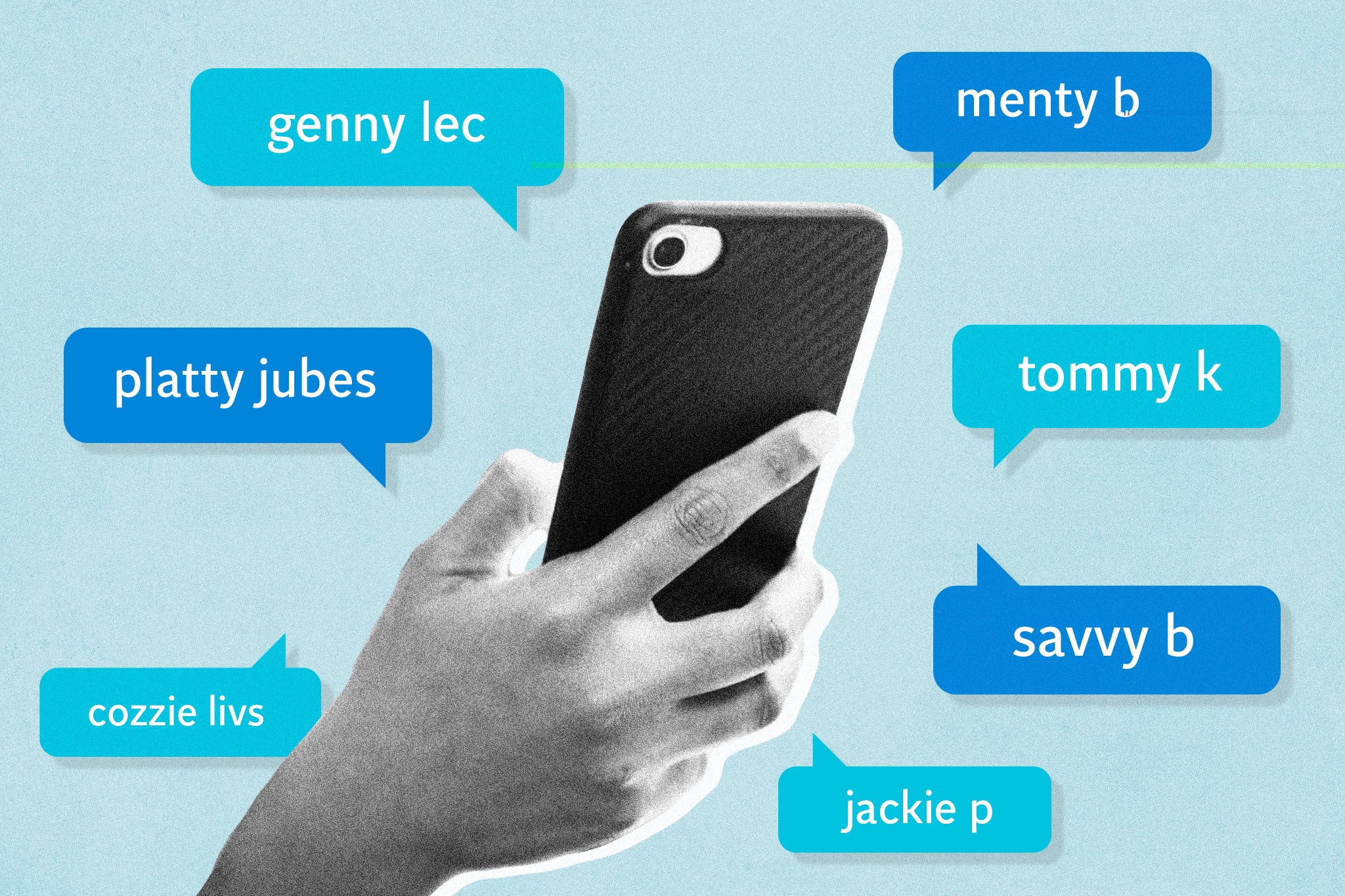From the ‘panny d’ to a ‘jackie p’, is the language of hun culture leaving you behind?
Gen Z and Gen Alpha have more ‘rizz’ than ‘LOLs’ – but linguists blame the internet for cringeworthy slang such as ‘cozzie livs’

Your support helps us to tell the story
From reproductive rights to climate change to Big Tech, The Independent is on the ground when the story is developing. Whether it's investigating the financials of Elon Musk's pro-Trump PAC or producing our latest documentary, 'The A Word', which shines a light on the American women fighting for reproductive rights, we know how important it is to parse out the facts from the messaging.
At such a critical moment in US history, we need reporters on the ground. Your donation allows us to keep sending journalists to speak to both sides of the story.
The Independent is trusted by Americans across the entire political spectrum. And unlike many other quality news outlets, we choose not to lock Americans out of our reporting and analysis with paywalls. We believe quality journalism should be available to everyone, paid for by those who can afford it.
Your support makes all the difference.“Gosh, the cozzie livs has got me having a menty b lately and I’ve been ab-rav for a jackie p with some tommy k but everything is just so spenny atm!”
“Hundy p mate.”
If this interaction bamboozles you, then you may be among the growing number of people mystified by the abbreviated slang increasingly popular among Gen Z and Millennials.
Phrases such as “clausy phobes” (claustrophobia), “sally c” (salad cream), or even “I’m having a menty b after checking my banky b” (having a mental breakdown at the state of one’s bank balance) might leave many scratching their heads, but to some Britons, it has become common parlance.
According to a new survey from tour company Evan Evans, the abbreviations risk leaving many behind.
Tony Thorne, a language consultant at King’s College London, has researched slang and how the generational overlap between baby boomers, Gen X (born mid-1960s to late 1970s), millennials, Gen Z (born mid-1990s to 2010) and Gen Alpha (2010-2015) has led to language contention.
He believes that “cringe lingua” such as “savvy b” (sauvignon blanc) and “cozzie livs” (cost of living) derives from the online “hun” generation – a subculture lampooned on Mumsnet that runs rampant with the frivolous and facetious use of “gorg” and “mwah” when typing furiously on WhatsApp – an etymological by-product of the “live, laugh, love” philosophy.
It extends to the humble “jackie p” (jacket potato) with a squirt of “tommy k” (tomato ketchup) on top – a money-saving meal when everything is so “spenny” (expensive) – and even the simple affirmative “hundy p” (one hundred per cent).
Such phrases are attributed to this broadly millennial subculture, which involves making silly jokes online. Those who subscribe to it, Thorne says, tend to be white, young, and upper-working-class to lower-middle-class women.
He said: “The online phrases such as ‘platty jubes’ and ‘savvy b’ mock the formal language that oppresses us, and we see this with young people when they move into the world of work and professionalism.
“The language of work can be psychologically oppressive, and naturally our reaction is to mock it.”
Tony Crowley, chair of English language at the University of Leeds, shed further light on the evolution and proliferation of British slang.
“All language is both exclusive and inclusive at the same time,” he said. “Traditionally, you’re not in the group if you don’t know the code. Now, you can know of words through social media, but it doesn’t mean you’ll adopt and use them.
He added: “Using informality sets a relationship with someone based on trust, and language is always about signalling relationships.”
This year saw the emergence of “genny lec” for the general election, following on from “cozzie livs” for the cost of living crisis – both of which seek to take the sting out of our national malaise through comic and quickfire phrasing.
In 2020, “the rona” kept us confined as the Covid-19 “panny d” (pandemic) took hold.
Experts say such abbreviation is a particularly British trope, finding a way to lift the mood and be more creative and informal in discussion.
Thorne said it was important to differentiate between “huns” subculture and Gen Z and Gen Alpha, who have adopted a more aggressive slang using phrases derived from text speech, for example “IKYFL” – “I know you’re f***ing lying” – and ONG for “On God” to emphasise conviction.
This explains the evolution from early text-speak, such as “LOL” (laugh out loud) and “IMHO” (in my humble opinion), to very online jargon such as “rizz” (charisma, charm, or chat-up skill) or “mid” (average, underwhelming).
Both linguists agreed that these abbreviations are always novel to their users; coining a phrase gives each generation an expression that belongs to them.
Join our commenting forum
Join thought-provoking conversations, follow other Independent readers and see their replies
Comments